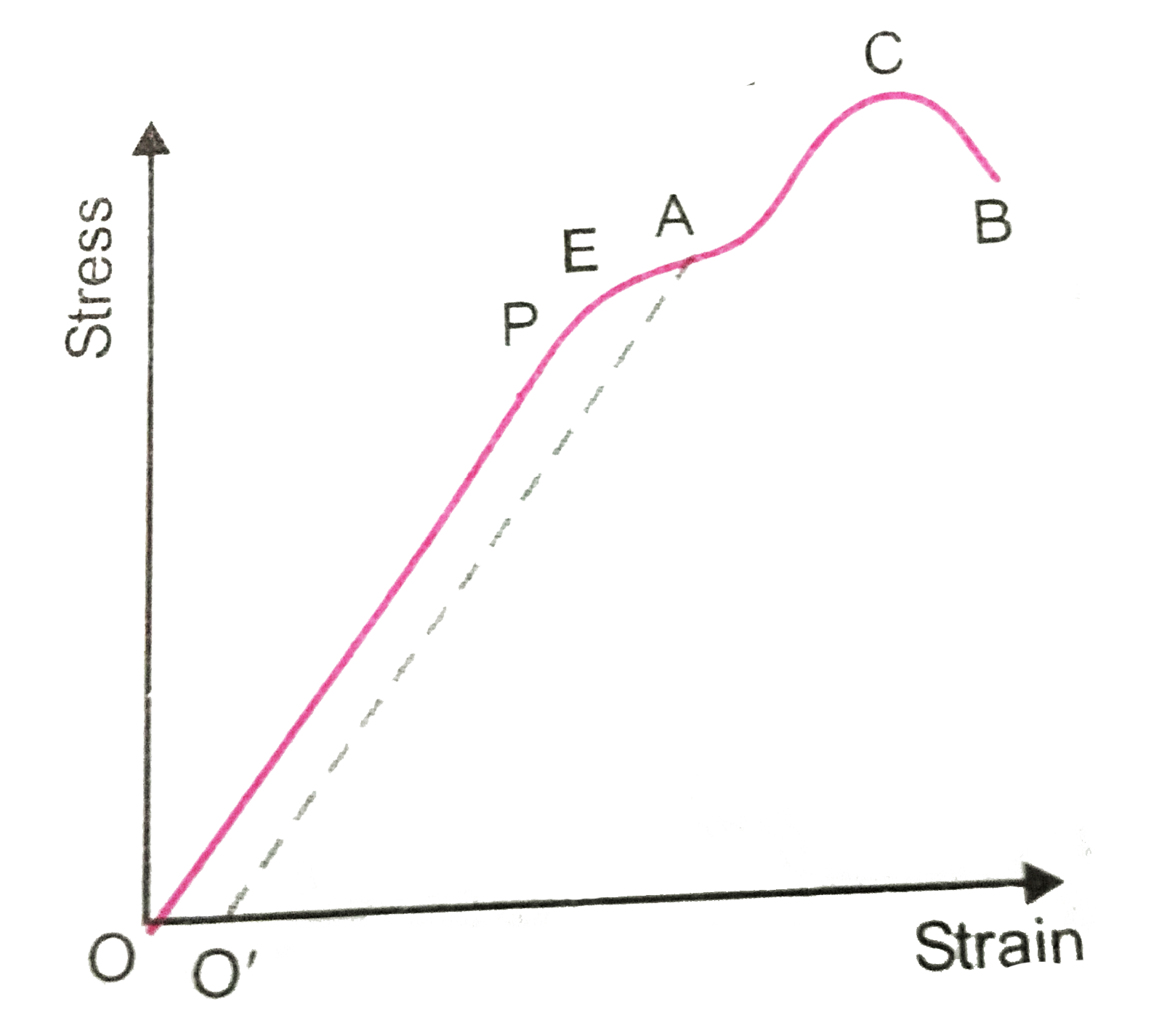The A leaves the eye and the retinal blood vessels enter it at a point medial to and slightly above the posterior pole of the eyeball. B is not present in that region and hence it is called the C . At the posterior pole of the eye lateral to the C there is a yellowish pigmented spot called D with a central pit called the E




The correct Answer is:C
To solve the question step by step, we will identify each component mentioned in the question and relate them to the anatomy of the eye.
1. Identify A: The first part of the question states that "A leaves the eye and the retinal blood vessels enter it at a point medial to and slightly above the posterior pole of the eyeball."
- Answer: A refers to the optic nerve. The optic nerve is formed by the axons of the ganglion cells in the retina and exits the eyeball at the optic disc, which is located slightly medial and above the posterior pole.
2. Identify B: The next part mentions "B is not present in that region and hence it is called the C."
- Answer: B refers to photoreceptor cells (rods and cones). The optic disc (where the optic nerve exits) does not contain any photoreceptor cells, which is why this area is referred to as the blind spot (C).
3. Identify D: The question then states that "At the posterior pole of the eye lateral to the C there is a yellowish pigmented spot called D."
- Answer: D refers to the macula lutea. This is a yellowish spot located laterally to the blind spot (optic disc) and is responsible for high acuity vision.
4. Identify E: Finally, it mentions "with a central pit called the E."
- Answer: E refers to the fovea centralis. The fovea is a small depression in the macula lutea that contains a high concentration of cone cells, providing the sharpest vision.
Summary of Answers:
- A: Optic nerve
- B: Photoreceptor cells
- C: Blind spot
- D: Macula lutea
- E: Fovea centralis
Final Answer:
The complete answer to the question is:
- A = Optic nerve
- B = Photoreceptor cells
- C = Blind spot
- D = Macula lutea
- E = Fovea centralis
- Answer: A refers to the optic nerve. The optic nerve is formed by the axons of the ganglion cells in the retina and exits the eyeball at the optic disc, which is located slightly medial and above the posterior pole.
- Answer: B refers to photoreceptor cells (rods and cones). The optic disc (where the optic nerve exits) does not contain any photoreceptor cells, which is why this area is referred to as the blind spot (C).
- Answer: D refers to the macula lutea. This is a yellowish spot located laterally to the blind spot (optic disc) and is responsible for high acuity vision.
- Answer: E refers to the fovea centralis. The fovea is a small depression in the macula lutea that contains a high concentration of cone cells, providing the sharpest vision.
- A: Optic nerve
- B: Photoreceptor cells
- C: Blind spot
- D: Macula lutea
- E: Fovea centralis
The complete answer to the question is:
- A = Optic nerve
- B = Photoreceptor cells
- C = Blind spot
- D = Macula lutea
- E = Fovea centralis
Similar Questions
Knowledge Check
The forests of amierica, however slighted by man, must have been a great delight to god, for they wer the best he ever planted the whole continent was a garden, and from the beginning it seemed to tbe favored above all the other wild parks and gardens of the globe. [...] So they appeared a few cnturies ago when they were rajoicing in wildness. The indians with stone exes could do them no nore harm than could gnawing beavers and browsing moose. Even the fires of the indians and the fierce shattering lightning seemed to work together only for good in clearing sports here and there for smooth garden parairies, and openings for sunflowers seeking the light. But hwhen the steel axe of the white man rang out in the startled air their doom was sealed. Every tree heard the bodeful sound, and pillars of smoke gave the sign in the sky. I suppose we need not go mourning the buffaloes. In the nature of things they had to give place to better cattle, though the chang e might have be made without barbarous wickedness. Likewise many of nature's five hundred kinds of wild trees had to make way for orchards and conrfields. In the settlement and civilization of the country, bread m ore than timebr or beauty was wanted, and in the blindess of hunger, the early settlers claiming heaven as theri guide, regarded god's trees as only a larger king of pernicious weeds, extremely hard to get rid of. Accordingly, whth no eye to the future, these pious destroyers waged interminable forest wars, chips flew thick and fast, trees in their beauty fell crashing by mllions, smashed to confusion, and the smoke of their burning has been rising to heaven more than two hundred years. After the atlantic coast from Maine to Georgia had been mostly cleard and acorched into melancholy runins, the overflowing multitude of bread and money seekers poured over the Alleghenies into the fertile middle west, spreding ruthless devastation ever wider and farther over the rich valley of the Missippi and the vast shadowy pine region about the Great lakes. Thence still westward the invading horde of destroyers called settlers made its fiery way over the broad Rocky Mountains, felling and buring more fercely than ever, until at last it has reached the wild side of the continent, and entered the last of the great aboriginal foreast on the shores of the pacific. Surely, then ,it should not be wondered at that lovers of their country, bewailing its baldness, are now crying aloud, " save what is left of the forests" Clearing has surely now gone far enough, soon timber will be scarce, and not a grove will be left to rest in or pary in. the remnant protected will yield plenty of timber, a perennial harvest for every right use, without further diminution of its area, and will continue to cover the springs of the rivers that rise in the mountains and giveirrigating waters to the dry valleys at their feet, prevent wasting floods and be a blessing to everybody forever. Every other civilized nation in the word has been compelled to care for its forests, and so must we if wase and destruction are not to go on to the bitter end, leaving america as barren as palestine or spain. In its clamer moments in the midst of bewildering hunger and war and restless over-industry, Prussia has learned that the forest plays an important part in hman progress, and that the advance in civilization only makes it more indispensable. [...] so far our government has done nothing effective with its forests, though the best in the world, but is like a rich and foolish spendthrift who has inherited a magnificent estate in perfect order, and then has left his rich fields and meadows, forests and then has left his rich fields and meadows, forests and parks, to be sold and plundered and wasted at will, depending on their inexhaustible abundance. Now it is plain that the forests ae not inehaustible, and that quick measures must be taken if ruin is to be avoided. Muir's tone in the passage is best described as
Aurgent and earnestBarrogant and condescendingCoptimistic and cheerfulDhopeless and depressedThe forests of amierica, however slighted by man, must have been a great delight to god, for they wer the best he ever planted the whole continent was a garden, and from the beginning it seemed to tbe favored above all the other wild parks and gardens of the globe. [...] So they appeared a few cnturies ago when they were rajoicing in wildness. The indians with stone exes could do them no nore harm than could gnawing beavers and browsing moose. Even the fires of the indians and the fierce shattering lightning seemed to work together only for good in clearing sports here and there for smooth garden parairies, and openings for sunflowers seeking the light. But hwhen the steel axe of the white man rang out in the startled air their doom was sealed. Every tree heard the bodeful sound, and pillars of smoke gave the sign in the sky. I suppose we need not go mourning the buffaloes. In the nature of things they had to give place to better cattle, though the chang e might have be made without barbarous wickedness. Likewise many of nature's five hundred kinds of wild trees had to make way for orchards and conrfields. In the settlement and civilization of the country, bread m ore than timebr or beauty was wanted, and in the blindess of hunger, the early settlers claiming heaven as theri guide, regarded god's trees as only a larger king of pernicious weeds, extremely hard to get rid of. Accordingly, whth no eye to the future, these pious destroyers waged interminable forest wars, chips flew thick and fast, trees in their beauty fell crashing by mllions, smashed to confusion, and the smoke of their burning has been rising to heaven more than two hundred years. After the atlantic coast from Maine to Georgia had been mostly cleard and acorched into melancholy runins, the overflowing multitude of bread and money seekers poured over the Alleghenies into the fertile middle west, spreding ruthless devastation ever wider and farther over the rich valley of the Missippi and the vast shadowy pine region about the Great lakes. Thence still westward the invading horde of destroyers called settlers made its fiery way over the broad Rocky Mountains, felling and buring more fercely than ever, until at last it has reached the wild side of the continent, and entered the last of the great aboriginal foreast on the shores of the pacific. Surely, then ,it should not be wondered at that lovers of their country, bewailing its baldness, are now crying aloud, " save what is left of the forests" Clearing has surely now gone far enough, soon timber will be scarce, and not a grove will be left to rest in or pary in. the remnant protected will yield plenty of timber, a perennial harvest for every right use, without further diminution of its area, and will continue to cover the springs of the rivers that rise in the mountains and giveirrigating waters to the dry valleys at their feet, prevent wasting floods and be a blessing to everybody forever. Every other civilized nation in the word has been compelled to care for its forests, and so must we if wase and destruction are not to go on to the bitter end, leaving america as barren as palestine or spain. In its clamer moments in the midst of bewildering hunger and war and restless over-industry, Prussia has learned that the forest plays an important part in hman progress, and that the advance in civilization only makes it more indispensable. [...] so far our government has done nothing effective with its forests, though the best in the world, but is like a rich and foolish spendthrift who has inherited a magnificent estate in perfect order, and then has left his rich fields and meadows, forests and then has left his rich fields and meadows, forests and parks, to be sold and plundered and wasted at will, depending on their inexhaustible abundance. Now it is plain that the forests ae not inehaustible, and that quick measures must be taken if ruin is to be avoided.
33. The overall point of the passage is toAtell a storyBsurvey current knowledgeCmake an argumentDdescribe an environmentThe forests of amierica, however slighted by man, must have been a great delight to god, for they wer the best he ever planted the whole continent was a garden, and from the beginning it seemed to tbe favored above all the other wild parks and gardens of the globe. [...] So they appeared a few cnturies ago when they were rajoicing in wildness. The indians with stone exes could do them no nore harm than could gnawing beavers and browsing moose. Even the fires of the indians and the fierce shattering lightning seemed to work together only for good in clearing sports here and there for smooth garden parairies, and openings for sunflowers seeking the light. But hwhen the steel axe of the white man rang out in the startled air their doom was sealed. Every tree heard the bodeful sound, and pillars of smoke gave the sign in the sky. I suppose we need not go mourning the buffaloes. In the nature of things they had to give place to better cattle, though the chang e might have be made without barbarous wickedness. Likewise many of nature's five hundred kinds of wild trees had to make way for orchards and conrfields. In the settlement and civilization of the country, bread m ore than timebr or beauty was wanted, and in the blindess of hunger, the early settlers claiming heaven as theri guide, regarded god's trees as only a larger king of pernicious weeds, extremely hard to get rid of. Accordingly, whth no eye to the future, these pious destroyers waged interminable forest wars, chips flew thick and fast, trees in their beauty fell crashing by mllions, smashed to confusion, and the smoke of their burning has been rising to heaven more than two hundred years. After the atlantic coast from Maine to Georgia had been mostly cleard and acorched into melancholy runins, the overflowing multitude of bread and money seekers poured over the Alleghenies into the fertile middle west, spreding ruthless devastation ever wider and farther over the rich valley of the Missippi and the vast shadowy pine region about the Great lakes. Thence still westward the invading horde of destroyers called settlers made its fiery way over the broad Rocky Mountains, felling and buring more fercely than ever, until at last it has reached the wild side of the continent, and entered the last of the great aboriginal foreast on the shores of the pacific. Surely, then ,it should not be wondered at that lovers of their country, bewailing its baldness, are now crying aloud, " save what is left of the forests" Clearing has surely now gone far enough, soon timber will be scarce, and not a grove will be left to rest in or pary in. the remnant protected will yield plenty of timber, a perennial harvest for every right use, without further diminution of its area, and will continue to cover the springs of the rivers that rise in the mountains and giveirrigating waters to the dry valleys at their feet, prevent wasting floods and be a blessing to everybody forever. Every other civilized nation in the word has been compelled to care for its forests, and so must we if wase and destruction are not to go on to the bitter end, leaving america as barren as palestine or spain. In its clamer moments in the midst of bewildering hunger and war and restless over-industry, Prussia has learned that the forest plays an important part in hman progress, and that the advance in civilization only makes it more indispensable. [...] so far our government has done nothing effective with its forests, though the best in the world, but is like a rich and foolish spendthrift who has inherited a magnificent estate in perfect order, and then has left his rich fields and meadows, forests and then has left his rich fields and meadows, forests and parks, to be sold and plundered and wasted at will, depending on their inexhaustible abundance. Now it is plain that the forests ae not inehaustible, and that quick measures must be taken if ruin is to be avoided.
39. Muir describes the overall approach to forest anagement by the U. S Government at the time this pasage was written asAhands -offBlegalisticCprogressiveDinterventionist
Assertion: The optic nerve leaves the eye at the point called blind spot
Reason: Only cones are densely packed at the blind spot, hence is the name.
View SolutionRead the following statements (A to D) and select the one option that contains both correct statements.
A. Z-line is present in the centre of the light band.
B. Thin filaments are firmly attached to the M-line.
C. The central part of thick filaments, not overlapped by thin filaments is called Z-band.
D. Light band contains only thin filaments.
View SolutionThe stress strain graph for a metal wire is shown in the fig. Up to the point E, the wire returns to its original state O along the curve EPO, when it is gradually unloaded. Point B corresponds to the fracture of the wire.

(a) Up to what point on the curve is Hooke's law obeyed? (this point some times called proportional limits).
(b) Which point on the curve corresponding to elastic limit or yield point of the wire?
(c ) Indicate the elastic and plastic regions of the stress-strain graph.
(d) Describe what happens when the wire is loaded up to a stress corresponding to the point A on the graph and then unloaded gradually. In particular explain the dotted curve.
(e) What is peculiar about the portion of the stress- strain graph from C to B? Up to what stress can the wire be subjected without causing fracture?
View SolutionThe forests of amierica, however slighted by man, must have been a great delight to god, for they wer the best he ever planted the whole continent was a garden, and from the beginning it seemed to tbe favored above all the other wild parks and gardens of the globe. [...] So they appeared a few cnturies ago when they were rajoicing in wildness. The indians with stone exes could do them no nore harm than could gnawing beavers and browsing moose. Even the fires of the indians and the fierce shattering lightning seemed to work together only for good in clearing sports here and there for smooth garden parairies, and openings for sunflowers seeking the light. But hwhen the steel axe of the white man rang out in the startled air their doom was sealed. Every tree heard the bodeful sound, and pillars of smoke gave the sign in the sky. I suppose we need not go mourning the buffaloes. In the nature of things they had to give place to better cattle, though the chang e might have be made without barbarous wickedness. Likewise many of nature's five hundred kinds of wild trees had to make way for orchards and conrfields. In the settlement and civilization of the country, bread m ore than timebr or beauty was wanted, and in the blindess of hunger, the early settlers claiming heaven as theri guide, regarded god's trees as only a larger king of pernicious weeds, extremely hard to get rid of. Accordingly, whth no eye to the future, these pious destroyers waged interminable forest wars, chips flew thick and fast, trees in their beauty fell crashing by mllions, smashed to confusion, and the smoke of their burning has been rising to heaven more than two hundred years. After the atlantic coast from Maine to Georgia had been mostly cleard and acorched into melancholy runins, the overflowing multitude of bread and money seekers poured over the Alleghenies into the fertile middle west, spreding ruthless devastation ever wider and farther over the rich valley of the Missippi and the vast shadowy pine region about the Great lakes. Thence still westward the invading horde of destroyers called settlers made its fiery way over the broad Rocky Mountains, felling and buring more fercely than ever, until at last it has reached the wild side of the continent, and entered the last of the great aboriginal foreast on the shores of the pacific. Surely, then ,it should not be wondered at that lovers of their country, bewailing its baldness, are now crying aloud, " save what is left of the forests" Clearing has surely now gone far enough, soon timber will be scarce, and not a grove will be left to rest in or pary in. the remnant protected will yield plenty of timber, a perennial harvest for every right use, without further diminution of its area, and will continue to cover the springs of the rivers that rise in the mountains and giveirrigating waters to the dry valleys at their feet, prevent wasting floods and be a blessing to everybody forever. Every other civilized nation in the word has been compelled to care for its forests, and so must we if wase and destruction are not to go on to the bitter end, leaving america as barren as palestine or spain. In its clamer moments in the midst of bewildering hunger and war and restless over-industry, Prussia has learned that the forest plays an important part in hman progress, and that the advance in civilization only makes it more indispensable. [...] so far our government has done nothing effective with its forests, though the best in the world, but is like a rich and foolish spendthrift who has inherited a magnificent estate in perfect order, and then has left his rich fields and meadows, forests and then has left his rich fields and meadows, forests and parks, to be sold and plundered and wasted at will, depending on their inexhaustible abundance. Now it is plain that the forests ae not inehaustible, and that quick measures must be taken if ruin is to be avoided.
41. Muir suggests that the united states should emulate the philosophy of which country?
View SolutionThe forests of amierica, however slighted by man, must have been a great delight to god, for they wer the best he ever planted the whole continent was a garden, and from the beginning it seemed to tbe favored above all the other wild parks and gardens of the globe. [...] So they appeared a few cnturies ago when they were rajoicing in wildness. The indians with stone exes could do them no nore harm than could gnawing beavers and browsing moose. Even the fires of the indians and the fierce shattering lightning seemed to work together only for good in clearing sports here and there for smooth garden parairies, and openings for sunflowers seeking the light. But hwhen the steel axe of the white man rang out in the startled air their doom was sealed. Every tree heard the bodeful sound, and pillars of smoke gave the sign in the sky. I suppose we need not go mourning the buffaloes. In the nature of things they had to give place to better cattle, though the chang e might have be made without barbarous wickedness. Likewise many of nature's five hundred kinds of wild trees had to make way for orchards and conrfields. In the settlement and civilization of the country, bread m ore than timebr or beauty was wanted, and in the blindess of hunger, the early settlers claiming heaven as theri guide, regarded god's trees as only a larger king of pernicious weeds, extremely hard to get rid of. Accordingly, whth no eye to the future, these pious destroyers waged interminable forest wars, chips flew thick and fast, trees in their beauty fell crashing by mllions, smashed to confusion, and the smoke of their burning has been rising to heaven more than two hundred years. After the atlantic coast from Maine to Georgia had been mostly cleard and acorched into melancholy runins, the overflowing multitude of bread and money seekers poured over the Alleghenies into the fertile middle west, spreding ruthless devastation ever wider and farther over the rich valley of the Missippi and the vast shadowy pine region about the Great lakes. Thence still westward the invading horde of destroyers called settlers made its fiery way over the broad Rocky Mountains, felling and buring more fercely than ever, until at last it has reached the wild side of the continent, and entered the last of the great aboriginal foreast on the shores of the pacific. Surely, then ,it should not be wondered at that lovers of their country, bewailing its baldness, are now crying aloud, " save what is left of the forests" Clearing has surely now gone far enough, soon timber will be scarce, and not a grove will be left to rest in or pary in. the remnant protected will yield plenty of timber, a perennial harvest for every right use, without further diminution of its area, and will continue to cover the springs of the rivers that rise in the mountains and giveirrigating waters to the dry valleys at their feet, prevent wasting floods and be a blessing to everybody forever. Every other civilized nation in the word has been compelled to care for its forests, and so must we if wase and destruction are not to go on to the bitter end, leaving america as barren as palestine or spain. In its clamer moments in the midst of bewildering hunger and war and restless over-industry, Prussia has learned that the forest plays an important part in hman progress, and that the advance in civilization only makes it more indispensable. [...] so far our government has done nothing effective with its forests, though the best in the world, but is like a rich and foolish spendthrift who has inherited a magnificent estate in perfect order, and then has left his rich fields and meadows, forests and then has left his rich fields and meadows, forests and parks, to be sold and plundered and wasted at will, depending on their inexhaustible abundance. Now it is plain that the forests ae not inehaustible, and that quick measures must be taken if ruin is to be avoided.
37. Which option gives the best evidence for the answer to the previous question?
View Solution
